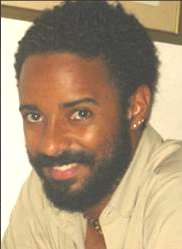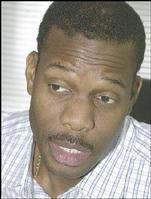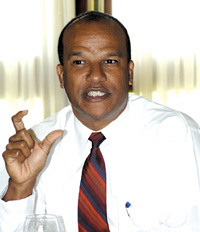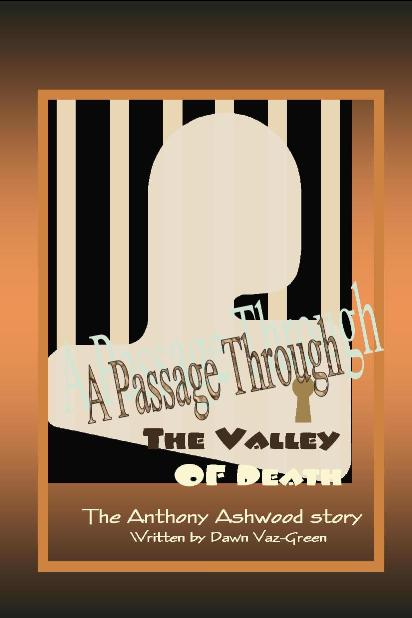Jackie Harlow, Diane Lucas and Alex Lee — Harvard Law atudents, in Jamaica for five days work on a clinical assignment. They are documenting the concerns of inmates and relatives upon entry into GP, General Penitentiary.
Here is their audio impressions of the first two days.
Jackie Harlow’s Journal
— first entry
— second entry
A t 02:02 PM 10/22/2005, Jacqueline Harlow wrote:
Thanks for asking about the journal entries. If you think they are helpful to the project, then I absolutely don’t mind that they’re posted. Also, while I think that the content itself should probably be left as is, I would like to correct some of the many typos if that’s possible. I may be digging myself quite a hole by leaving the content as is – at some point I disparaged patent litigation as a career – but I think that rawness adds to the entries. Besides, if I start editing the posts, that might steal the thunder of the forthcoming critique.
😉
X-Sieve: CMU Sieve 2.2
From: Jacqueline Harlow
Subject: Re: Re:
Date: Sun, 23 Oct 2005 16:30:10 -0400
To: Charles Nesson
X-Mailer: Apple Mail (2.623)
X-Virus-Scanned: amavisd-new at harvard.edu
X-Spam-Checker-Version: SpamAssassin 3.0.2-soc_rev_28 (2004-11-16) on terri
X-Spam-Level:
X-Spam-Status: No, hits=-30.6 required=4.0 autolearn=no
version=3.0.2-soc_rev_28
I do recognize that there is a chip on my shoulder tone to the journal entries. I took that tone intentionally, although perhaps naively.
When I started writing, I saw the establishment as an impediment to what Kevin is trying to do. The bureaucracy we witnessed at the Commissioner’s office on Friday, combined with Kevin’s clear frustration with the Department reinforced that impression. The Commissioner and his colleagues provided an obvious antagonist for the story I was telling. And treating them as such, while sometimes an oversimplification, made the story an easier one to tell. Super hero takes on stagnated, unfeeling establishment to give society’s cast-offs a voice and a second chance. I sought to generate interest in the story by playing up a conflict between old and new. I wanted to excite people about what Kevin is doing, and point my finger at an institution that everyone should work to change. While I still see some worth in that approach – especially for my own growth – I think it was shortsighted. I didn’t spend enough time thinking about who my audience would be and what I wanted from them (more on that in a few paragraphs).
The journal entries are meant to reflect my feelings at the time I was experiencing them. Even the entries written or completed later always refer to the present, to today. I intentionally did my best to avoid reflecting on my experiences when writing the journal. I wanted to capture the passion of the moment. I wanted to minimize the degree to which I polluted the raw experience with reflection. Before writing about any particular day, I would sit with my eyes closed, listening to my favorite works from Beethoven and Chopin, and floating back in time to the day I planned to write about. Doing my best to raise the emotions of that day to the surface. I did this for myself more than anyone else. The trip was an opportunity for me to see a world where people dedicate their careers to doing something good for the world.
For the past few months I’ve been putting off accepting an offer with a law firm that I like as much as someone like me can like a law firm, hoping that I might find something better to do with my life. I really wanted to capture the feelings I experienced to help motivate me to follow my heart, not to take the easy road of drafting district court briefs challenging the validity of patents for ridiculous sums of money.
Sometimes I questioned my approach while I was writing, but for the most part it seemed to make sense. And it made it easier for me to write – so often it’s a simpler task to cut than to mend, to question rather than to explain. Retrospectively, I think the tact I took revealed my lack of experience, and probably did more to impeach my credibility than to excite people about the story. The good versus bad theme is never the whole story, and likely my audience recognized that. I’m sure that many who read the journal walked away with the impression that I am young and emotional. Fiery and impatient.
Perhaps even closed-minded.
I wrote as though I was speaking to myself, or to an auditorium of college students that I wanted to incite to action. I was not thinking about the importance of appealing to leaders and academics with my entries. I wrote an impassioned and sometimes indignant stump speech, not an objective report. I should have offered more nuance to my readers.
This is especially so given the purpose of the Cyberstrategy Conference. Business leaders are unlikely to want to invest in a program if they see it as a maverick, anti-establishment program. They would rather hear a story about how Kevin is helping the Department to evolve. About how he is working with the Department to create opportunities and improve how the Department works. Likely, they don’t want to be associated with an attack on the government. Similarly, the intellectuals and academics interested in the story are probably interested in building relationships instead of tearing them apart. In reforming the system from the inside, as well as the outside. I imagine that it would have been more productive for me to provide a deeper, more analytic characterization of my experience. I’m still not convinced that there is no place for what I wrote, however. Rather, I think it needs to be examined critically, and then explained.
I would be OK with Kevin reading the journal. Less so with the Commissioner and Mrs. Jarrett. Not because I disparaged those two, but because I was not fair in my treatment of them. I did not ask how they ended up the way they are. Nor did I emphasize the importance of their work or the good that they have done. I took cheap shots for the purpose of inciting my readers, and didn’t bother to paint the full picture. I thought about that sometimes when I was writing, but never did anything about it. As for Kevin, again, I’d like to fill out my discussion of Kevin a bit more. I have a lot to say about him. I might be guilty of turning Kevin into a one-dimensional character just as I did with Reese and Jarret. Even though he received much more favorable treatment, I’d still like to tell that aspect of the story better.
I think that it would be a great exercise for me to write a few entries reflecting on the experience as a whole. Putting the puzzle together, analyzing the dynamics of the situation more thoroughly, and exploring my own emotions and reactions. Perhaps one on SET, another on the Commissioner and Mrs. Jarrett, one on Kevin. I hope to have time to do this soon.
Thanks for posing these questions. I’m terribly interested in your response to my answers. A little nervous too, because I suspect that you’ll have many things to say that I haven’t even come close to thinking about. That’s where the learning comes in, though.
As an aside, I’ve been thinking about law as poker. I think that I think about the game in the wrong way. I tend to look around the table and ask “what result do I want from everyone here” without taking enough time to appraise the situation or really think through my goal (is what I think I want actually what I want? is it the best outcome possible?). I am generally thorough in thinking about how I am going to get what I want out of the other players, but that doesn’t really matter if I’ve misjudged what it is that I want. I think that I tend not to forecast far enough into the future. Two moves ahead instead of six. It doesn’t help that I can be rather strong-willed, and can turn into a pit bull when I feel provoked. Those two I have been working on. But it wasn’t until this week that I started thinking about the larger faults in my poker strategy.
Jackie, The strong points that shine out to me from your journal entries so far are your willingness to engage and honestly report, your strong narrative sense, your fluency and power in expressing yourself. You are open to the experience before you. You engage me as a reader and allow me to share your adventure. You give me opportunity to feel what you are feeling and to learn with you. Here are points for you to consider. You write with what seems a chip on your shoulder. Do you recognize this? Is this intentional? What is your motive? What does this say to your reader about your identity? Is this expressive of your feeling at the time, thus a contemporaneous report, or does this express the wisdom of your reflection? Are you comfortable with Kevin, Mrs. Jarrett and Major Reese reading your account? Who are you imagining as your audience?
charlie
On Oct 22, 2005, at 1:25 PM, Charles Nesson wrote:
Jackie, is it okay with you that i am posting your journal entries? http://cyber.law.harvard.edu/nesson/blog
i apologize for not asking this of you sooner. If you want me to take them down, or if you want to edit, please let me know.
To: Charles Nesson
From: Jacqueline Harlow
Subject: a pop quiz
Date: Thu, 10 Nov 2005 22:03:06 -0500
JOLT hosted a talk by Annalee Newitz tonight. Annalee started her
talk by saying that she was going to make certain assumptions, and
that her assumptions are right. Period. My knee jerk reaction was
to want to argue with her about her position. To criticize it and
cast it into doubt. But I caught myself. And I started thinking
about questions I’d like to ask, constructive questions that would
help me to get at why Annalee takes the position that she does and
who she is. Once I did that, I started listening – really listening
– to what she had to say, and how she was saying it. Looking for
little nuggets of Annalee’s truth, and her story. Not only did that
simple change in perspective make the talk enjoyable, but it also
helped me to see things differently, to hear what was being said, to
learn and absorb what I would likely have missed otherwise, and to
get to know Annalee and the audience in a way that I wouldn’t have
otherwise.
At 08:54 AM 10/21/2005, you wrote:
Charles Nesson wrote:
> Ethan, your blog is awesome. i see an energy that no other medium
> could so gracefully express. The flow of intelligence and engagement
> is almost frightening.
>
>
You’re wonderfully kind, Charlie. I’m cheating today – all I really have
to do is be a scribe, as the folks Andrew Zolli puts on stage at
Pop!Tech are consistently excellent… indeed, tomorrow Rebecca will be
on stage.
Hope the rest of your Jamaica trip was as wonderful as the beginning.
Take good care.
-E
—
Ethan Zuckerman | ezuckerman@cyber.law.harvard.edu
Research Fellow, Berkman Center for Internet and Society
413-441-3380 | http://www.ethanzuckerman.com/blog
http://globalvoicesonline.org | http://worldchanging.com


 This afternoon, sitting in CBKE center in Wroclaw, i’m on a video conference to Slovenia where Larry Lessig is speaking this morning. i will talk with him about the Net as an inflection point in information history, and about the way in which wealth produces law to protect itself, about how the “corporation” has enabled huge aggregations of proprietary information property in the last century, about how we are now in an environment in which the net permits the aggregation of public wealth, putting Free Culture in a downhill battle with proprietary forces, our challenge to be gentle with our enemies.
This afternoon, sitting in CBKE center in Wroclaw, i’m on a video conference to Slovenia where Larry Lessig is speaking this morning. i will talk with him about the Net as an inflection point in information history, and about the way in which wealth produces law to protect itself, about how the “corporation” has enabled huge aggregations of proprietary information property in the last century, about how we are now in an environment in which the net permits the aggregation of public wealth, putting Free Culture in a downhill battle with proprietary forces, our challenge to be gentle with our enemies.











 Sitting at a magnificent table that snakes around the room at ECLET, listening to Mike Botein talk American sex and censorship, i am blogging with my screen projected to the room. i walked along the river earlier this morning, recording my thoughts in preparation for the session i am about to lead just a few minutes from now. Here is
Sitting at a magnificent table that snakes around the room at ECLET, listening to Mike Botein talk American sex and censorship, i am blogging with my screen projected to the room. i walked along the river earlier this morning, recording my thoughts in preparation for the session i am about to lead just a few minutes from now. Here is  And here is my host, Jacek Golaczynski, walking me into the building where the ECLET conference on Electronic Media is meeting,
And here is my host, Jacek Golaczynski, walking me into the building where the ECLET conference on Electronic Media is meeting,